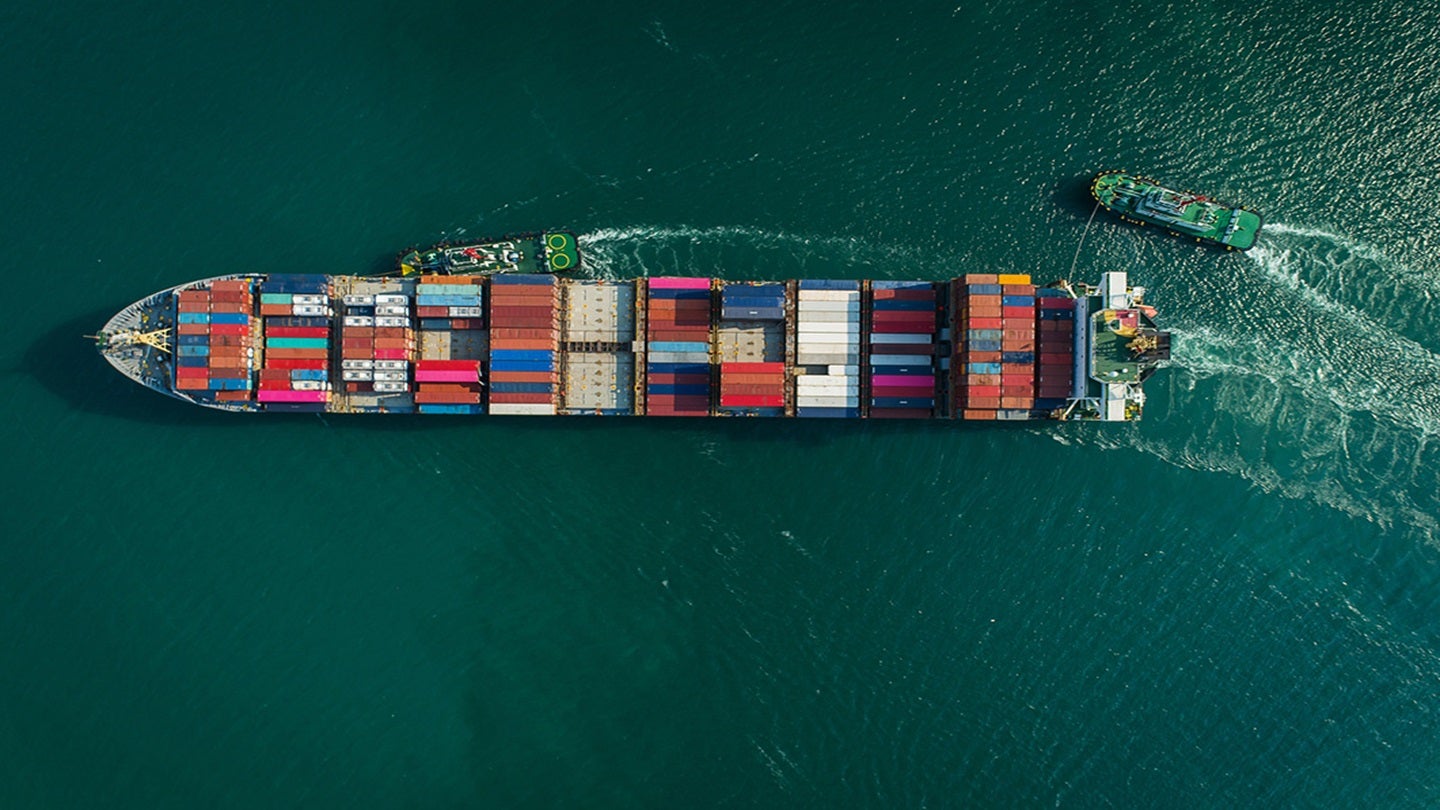Shipowners that trade with Europe face an unprecedented challenge. From next year, vessels sailing between, to, or from EU ports will face scrutiny for the energy they use. Yet shipowners will have to balance new regulatory compliance in the form of FuelEU Maritime with its indispensable role in goods transported into the EU, estimated at more than 1.7 billion tonnes.
While major operators are investing in building and retrofitting vessels with low-carbon technologies to simplify compliance, for a large section of the industry, this is both expensive and complex. Pooling, paying to share in the carbon savings produced by the low-carbon technology of other operators, can help smaller operators achieve compliance and buy time.

More than 61,000 ships operate on the water in today’s maritime industry. The global fleet comprises owners with just a few vessels competing with the behemoths of larger global vessel owners and operators, not just commercially, but to deliver sustainable operations that will contribute to the industry’s decarbonisation goals.
Today, this less prominent sector of smaller-sized fleet owners is quietly doing its job and facing the decarbonisation challenge.
Small and medium-sized shipowners face the unenviable task of balancing the indispensable need to run sustainable business operations with adopting immature, unproven, or expensive decarbonisation pathways. Their need for breathing space for FuelEU Maritime compliance is vital. So, how can we support this silent majority of shipping?
Challenges ahead
Decarbonising a fleet of vessels is not easy. Even if there is buy-in for quick wins, the shipping industry will still find it difficult to secure its share of the fuel without support, based on global production volumes of carbon-neutral fuel, let alone find enough fuel to meet its entire needs.
How well do you really know your competitors?
Access the most comprehensive Company Profiles on the market, powered by GlobalData. Save hours of research. Gain competitive edge.

Thank you!
Your download email will arrive shortly
Not ready to buy yet? Download a free sample
We are confident about the unique quality of our Company Profiles. However, we want you to make the most beneficial decision for your business, so we offer a free sample that you can download by submitting the below form
By GlobalDataEven the promise of solutions for shipping, including energy-efficient technologies and alternative fuels, only adds to the complexity of understanding which options are FuelEU compliant. This is especially true as FuelEU Maritime is technology agnostic, putting the onus on the owner, manager, or charterer to figure out what technologies and fuels can help them achieve their objectives.
This fluid and complex situation means some larger shipowners are dramatically revising their stance on certain technologies, as seen with Maersk’s decision to charter vessels that can run on liquefied biomethane (bio-LNG) in contrast to its previous statements on the fuel.
In contrast to IMO 2050, FuelEU Maritime forces the industry to focus on a closer horizon with its 2030 target. The ramp-up of the 6% well-to-wake greenhouse gas (GHG) intensity target will mean medium and smaller shipowners must look at securing solutions to meet the 2030 target. This will involve significant capital outlay that smaller fleet owners need to plan for carefully.
Securing these solutions is only part of the problem. Smaller to medium-sized shipowners must navigate the bureaucracy regarding regulatory compliance. This can be extensive.
Reporting is challenging and reliably demonstrating savings adds to the work for the smaller teams. Developing a competent team to manage these highly technical roles, which will only become more important to the success of a transport business, is a significant challenge of planning and resources.
Risk for small and medium-sized vessels
In some segments, such as liner and ferry, consumer-facing brands want to go further than just meeting essential regulatory standards. Reporting on and reducing scope three emissions is in the spotlight with the Corporate Sustainability Reporting Directive (CSRD), which means the sector needs to look at investing in cleaner shipping or finding a vessel operator with the scale and lower carbon footprint to match the goals of the directive.
The consequences are significant. Small to medium-sized vessel operators, the mainstay of the global maritime industry, could be pushed out of operating in Europe.
As a result, transport customers in Europe and importing into Europe will face a lack of choice as competition is moderated. Owners of smaller fleets need to act quickly to avoid finding themselves at a serious commercial disadvantage, that will also harm their customers.
Larger shipping companies have the capacity and leverage over their customers to manage the shift to FuelEU Maritime and comply with it more easily. As it prepares to comply with FuelEU Maritime, MSC recently announced an emissions surcharge for customers, with no indication of how the additional charges will be calculated regarding the operator’s cost of complying with FuelEU.
The advent of FuelEU Maritime and its significant complexity risks being used to increase costs for customers in some sectors of the shipping industry without a proportionate decarbonisation benefit.
The need to pool
Small to medium-sized shipowners need time to get their decisions right about how to comply with FuelEU Maritime targets and develop their business strategy to ensure long-term compliance. An immediate solution available today is to join a FuelEU Maritime pool. Pooling allows participants to benefit from the reduction of surplus emissions of the pool, leading to FuelEU Maritime compliance at the lowest possible cost.
Small and medium-sized shipowners need to get their bets on low-carbon technologies right. Larger fleets can invest in certain fuels or retrofit projects on a vessel and trial different operating practices. For smaller fleets, this is seldom an option.
The FuelEU Maritime pooling mechanism buys smaller operators time to consider these decisions and get them right. This is vital for certain segments. Tramp shippers, for instance, may face difficulties bunkering compliant fuels at the ports they visit.
Moving early to invest in clean technology, before infrastructure is more widely in place, is not an appealing strategy for such operators. For instance, zero-carbon biofuel has limited availability on many routes beyond the high-profile green corridors.
Pooling the future
Leaving it until close to the compliance date in early 2026 to join a pool could leave owners facing significant financial penalties. Having pooling contracts in place before the FuelEU monitoring period starts in 2025 will enable owners to better plan how to pass on costs to their customers, keeping them in line with compliance costs, while continuing to manage their decarbonisation expenses.
FuelEU Maritime is here and requires immediate action. Many small to medium-sized shipowners trading within or into Europe face serious commercial impacts due to non-compliance.
While the best long-term technology options for decarbonisation are yet to clearly separate themselves from the competition, it is difficult for smaller-sized owners to invest directly in their own fleets. Today, these owners need to secure time for themselves before making that commitment.
The FuelEU Maritime pooling mechanism allows them to decarbonise in line with the regulation at a low cost without compromising their own decision-making timelines.





Related Company Profiles
Maersk Line AS